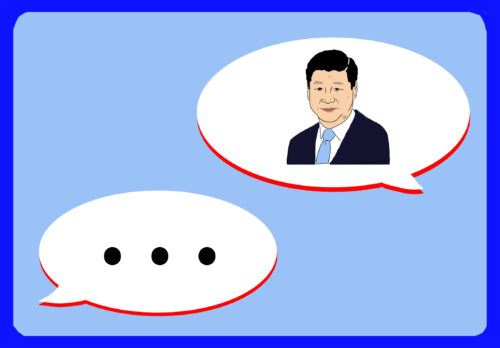Baidu’s free-fall continues: No longer Top 5 among Chinese internet companies

Faking search results, losing public trust, antagonizing critics, etc. — it’s all contributed to this: Baidu is no longer in the top five of China’s most valuable internet companies, having been overtaken by NetEase last week. Baidu’s shares have dipped 40 percent this year, Bloomberg reports, and has lost so many billions of dollars that its status as a BAT — formerly the “big three” of Chinese internet firms, Baidu, Alibaba, Tencent — is history.
Baidu has struggled to fend off competition from the likes of Tencent and ByteDance Inc., both of which are luring smartphone-savvy consumers and advertisers to their popular mini-video and social media apps.
The company enjoyed a near-monopoly in Chinese internet search after Google departed the market in 2010 over government censorship. This week, ByteDance launched its own standalone search engine, posing a serious threat to the almost two-decades-old Baidu. The company was previously pushed out of the Top 3 in market value by e-commerce operator JD.com Inc. and food delivery service Meituan.
Baidu has been on a downtrend trend for a couple years now, but the bad news has intensified this year. In addition to struggling with competition from Tencent and Bytedance, the company has failed to address some of its own biggest flaws, like fake or dangerously misleading search results, and antagonistic responses to critics.
Meanwhile, ecommerce giant Alibaba is seeing soaring sales, indicating that the underlying economic force of Chinese consumers remains healthy, despite cooling and questionable GDP numbers (covered in yesterday’s newsletter). Alibaba offered this explanation for how it achieved a 42 percent year-on-year growth in revenue for the three months ending in June, per the New York Times:
“The question that is invariably asked is: How does Alibaba’s business, which is consumption-driven, continue to deliver robust growth despite challenges in the broader economy?” an Alibaba co-founder, Joseph Tsai, said in a conference call.
“I want to offer two reasons. Both are big secular trends that are happening in China that we have taken advantage of. First is demographics, and the second is the rapid pace of digitization.”
China’s $5.5 trillion domestic consumption market is driven by the emergence of a middle class of over 300 million people living in large cities as well as the rapid urbanization of the countryside, Mr. Tsai said.






